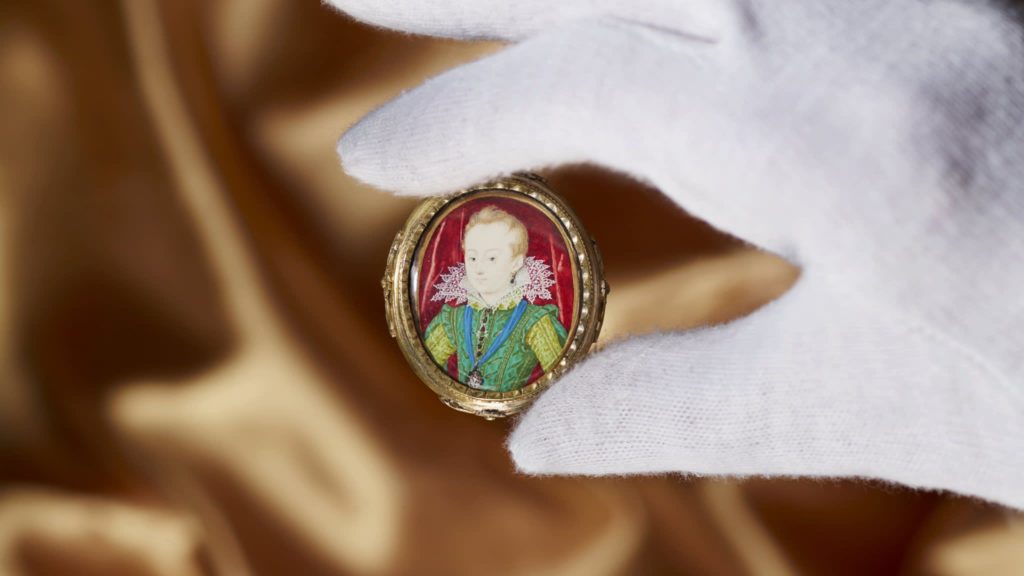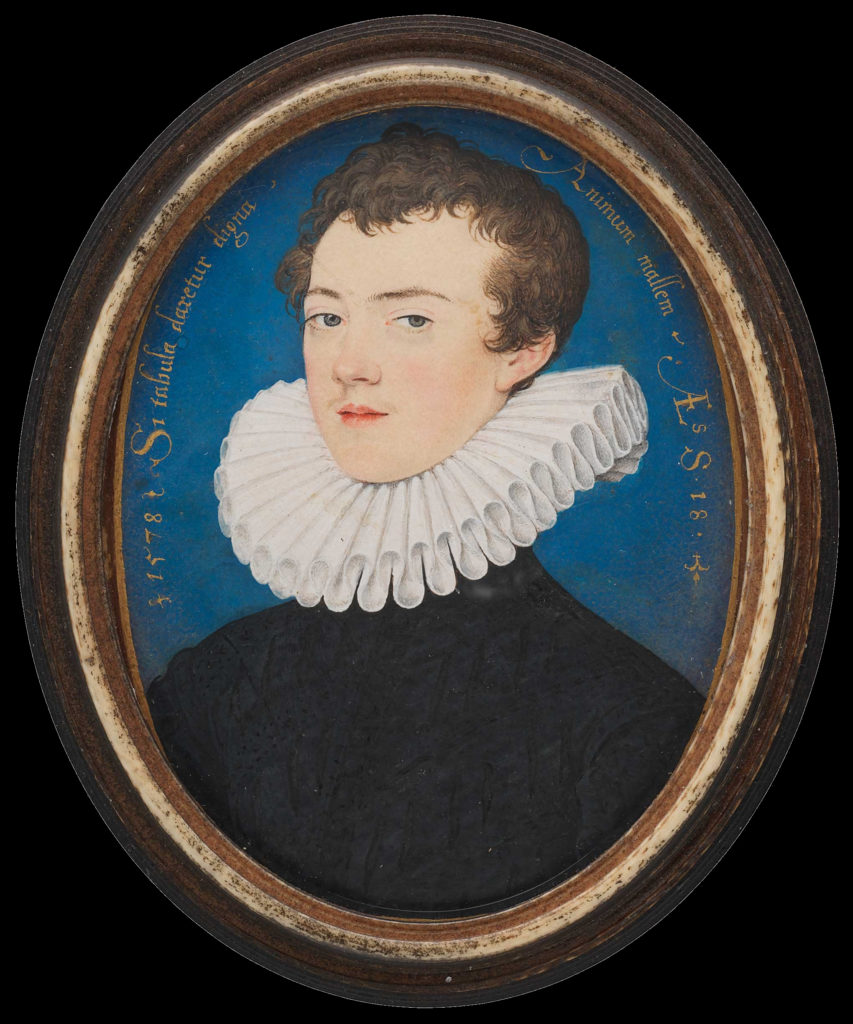The Elizabethan Period

Queen Elizabeth reigned from 1558 to 1603, and her reign is called the Golden Age of English history and culture.
Her father Henry VIII (from the House of Tudor) turned England into a Protestant kingdom. Her sister, who reigned before her, was called Bloody Mary because she tried to go back to Catholicism.
Historical document : Speech to the Troops at Tilbury, Elizabeth, 1588
With the discovery and conquest of the New World, the Middles Ages ended.
Spain was the most powerful and rich nation in Europe. But the reign of Elizabeth marked the triumph of England over Spain, with the defeat of the Invicible Armada in 1588.
Right before that decisive battle, Elizabeth delivered a speech to her soldiers, and it became very famous.
She became known as the Virgin Queen because she never married (but had suitors and lovers).
England became a new great nation, and it abandoned its French ambition, to become purely English.
My loving people.
We have been persuaded by some that are careful of our safety, to take heed how we commit our selves to armed multitudes, for fear of treachery; but I assure you I do not desire to live to distrust my faithful and loving people. Let tyrants fear. I have always so behaved myself that, under God, I have placed my chiefest strength and safeguard in the loyal hearts and good-will of my subjects; and therefore I am come amongst you, as you see, at this time, not for my recreation and disport, but being resolved, in the midst and heat of the battle, to live and die amongst you all; to lay down for my God, and for my kingdom, and my people, my honour and my blood, even in the dust.
I know I have the body of a weak, feeble woman; but I have the heart and stomach of a king, and of a king of England too, and think foul scorn that Parma or Spain, or any prince of Europe, should dare to invade the borders of my realm; to which rather than any dishonour shall grow by me, I myself will take up arms, I myself will be your general, judge, and rewarder of every one of your virtues in the field.
I know already, for your forwardness you have deserved rewards and crowns; and We do assure you on a word of a prince, they shall be duly paid. In the mean time, my lieutenant general shall be in my stead, than whom never prince commanded a more noble or worthy subject; not doubting but by your obedience to my general, by your concord in the camp, and your valour in the field, we shall shortly have a famous victory over these enemies of my God, of my kingdom, and of my people.
Visual Art : Francis Bacon, Baron Verulam, Nicholas Hilliard, 1578
Nicholas Hilliard is probably the most famous Elizabethan painter. He was also a goldsmith.
He specialized in miniature painting. This portrait was meant to be given to a friend or a lover, and worn as a pendant, or in a pocket. It was very small :

It has several interesting features. First, shadows and lights are very strong, it’s the chiaroscuro of the Italian Renaissance. Then, there are words around the portrait, a motto that reads : Si tabula daretur digna animum mallem, « if one could but paint his mind », that reflects the psychology of the person on the miniature. These sentences were called imprese, or impressions, and were sometimes very mysterious.
Francis Bacon later became an adviser to the Queen, and invented the « scientific method. »

Poetry : Astrophel and Stella, Sonnet 89, Philip Sidney, 1580s
When he met the beautiful Lady Penelope Devereux, young Member of Parliament Philip Sidney fell in love immediately. The young people were supposed to get married but her father died and she was married to someone else.
Inspired by this sad turn of event and by the works of Italian poets he discovered on his trips to Europe, he composed a series of over 100 sonnets called Astrophel and Stella (Stella means Star, and Astrophel, the lover of stars).
Now that of absence the most irksome night,
With darkest shade doth overcome my day;
Since Stella’s eyes, wont to give me my day,
Leaving my hemisphere, leave me in night,
Each day seems long, and longs for long-stayed night;
The night as tedious, woos th’approach of day;
Tired with the dusty toils of busy day,
Languished with horrors of the silent night;
Suffering the evils both of the day and night,
While no night is more dark than is my day,
Nor no day hath less quiet than my night:
With such bad mixture of my night and day,
That living thus in blackest winter night,
I feel the flames of hottest summer day.
Theatre : Hamlet, William Shakespeare, ca. 1600
Shakespeare probably is the most famous English writer of all time, if not the most famous writer of all time.
More precisely, he was a playwright, a writer of theatre plays.
He wrote his four famous tragedies during the reign of Elizabeth : Macbeth, King Lear, Othello and Hamlet.
This scene takes place when Hamlet meets the ghost of his dead father.
In the late 1590s, plays were very popular, and the rich and the poor would go to the same theatres, the former in comfortable booths, the latter in the pit, with no roof over their heads.